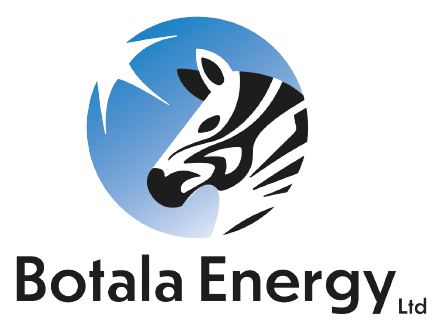This website uses cookies so that we can provide you with the best user experience possible. Cookie information is stored in your browser and performs functions such as recognising you when you return to our website and helping our team to understand which sections of the website you find most interesting and useful.
Environment
Environment
Energy to be generated by Botala is the part of the pathway to a sustainable, affordable, and reliable energy future for Botswana, its people and environment. Environmental awareness is a critical component of Botala’s sustainability pillars and desire to achieve all 17 SDGs and a better future for all.
Exploration, development, and production of cbm will be undertaken in compliance with statutory conditions and Botala’s Environmental, Social, Governance and Sustainability Policies. Environmental impacts are confined mainly to clearing of vegetation for drilling, fire breaks, development of surface infrastructure, roads for site access, and management of potentially saline groundwater.
Water abstracted during cbm production, if available in sufficient quantities and quality, will be used by Botala for irrigation, especially market gardening. This should provide many employment opportunities for the local community. Some water treatment may be required to obtain suitable water quality.
By minimising soil disturbances and vegetation clearance, and appropriate terrain reshaping and revegetation, potentially adverse impacts will be managed to avoid long-term impacts on flora, vegetation, habitats and wildlife or conflict with the other dominant regional land-uses of grazing and dryland cropping. This could complement these land-uses as Botala undertakes to conserve, protect and restore the environment in which it operates.
Botala’s energy developments include replacing high-carbon emitting coal with lower-carbon emitting cbm and converting solar energy to electricity. This transition to solar/cbm hybrids will reduce Botswana’s reliance on coal and diesel generated electricity, firewood and charcoal, and substantially reduce carbon dioxide emissions. Firewood collection is often undertaken illegally, and in fragile areas can lead to habitat destruction through the loss of bush and forest vegetation2.
Botala energy development will occur in structured, financially attractive step changes to cleaner energy and a sustainable transition.
1McGrath, G. (2021). Electric power sector CO2 emissions drop as generation mix shifts from coal to natural gas. Independent Statistics & Analysis U.S. Energy Information Administration. https://www.eia.gov/todayinenergy/detail.php?id=48296#:~:text=Lower%20CO2%20emissions%20have,2005%20to%2038%25%20in%202019. 2Conte, N. (2021). 30 Years of Deforestation and Forest Growth, by Country. Visual Capitalist. . https://www.visualcapitalist.com/mapped-30-years-of-deforestation-and-forest-growth-by-country/
Wildlife and Conservation
The Serowe cbm project and associated infrastructure will be located on farm and tribal trust land used for limited cropping and extensive grazing by cattle, some sheep, goats, donkeys, mules and the occasional horse. Many of these farms and tribal trust lands support habitats suitable for wildlife but game is sparse due to farming, extensive hunting and poaching. Botala may purchase some of these farms for ease of operation. Under these circumstances Botala will identify opportunities to return select areas to regional wildlife habitats and refuges and consolidate them into viable conservation areas.
Botala is considering partnering with local groups to develop carbon offset projects involving conservation, land restoration and fuel-switching.
These activities are likely to have the following impacts:
Employment
- Equal opportunity employment for the local community in land conservation, wildlife management and anti-poaching activities, land restoration, tree planting, and distribution of fuel-switching equipment (bottled gas instead of firewood).
- Training, skills development, and further investment in the local communities.
Social
- Health: Reduce and possibly remove major health issues associated with smoke inhalation from wood fires in small rooms with limited ventilation.
- Education: In many areas of Botswana firewood is the main source of domestic fuel, necessitating women and children spending many hours collecting firewood. Removing this need will allow women and children to spend their time more beneficially, including school attendance.
- Equal opportunity: As women, and particularly girls, don’t need to collect firewood, they can spend their time in school or other employment. Botala is an equal opportunity employer, providing equal opportunities for both men and women. Botala will partner with local groups, particularly women, to provide equal opportunity employment and upskilling through training programmes.
Environment
- Improving habitat quality and providing increased protection to wildlife as Botala will: not permit hunting; implement anti-poaching measures; support conservation of natural habitat protection; promote deforestation measures; create awareness of potential effects of climate change; and support the restoration of deforested, overgrazed, and degraded land.
- Contribute to increasing conservation, habitat and restoration awareness.

